- News
- Reviews
- Bikes
- Accessories
- Accessories - misc
- Computer mounts
- Bags
- Bar ends
- Bike bags & cases
- Bottle cages
- Bottles
- Cameras
- Car racks
- Child seats
- Computers
- Glasses
- GPS units
- Helmets
- Lights - front
- Lights - rear
- Lights - sets
- Locks
- Mirrors
- Mudguards
- Racks
- Pumps & CO2 inflators
- Puncture kits
- Reflectives
- Smart watches
- Stands and racks
- Trailers
- Clothing
- Components
- Bar tape & grips
- Bottom brackets
- Brake & gear cables
- Brake & STI levers
- Brake pads & spares
- Brakes
- Cassettes & freewheels
- Chains
- Chainsets & chainrings
- Derailleurs - front
- Derailleurs - rear
- Forks
- Gear levers & shifters
- Groupsets
- Handlebars & extensions
- Headsets
- Hubs
- Inner tubes
- Pedals
- Quick releases & skewers
- Saddles
- Seatposts
- Stems
- Wheels
- Tyres
- Health, fitness and nutrition
- Tools and workshop
- Miscellaneous
- Buyers Guides
- Features
- Forum
- Recommends
- Podcast
feature
How much slower is a gravel bike on the road? Testing a road bike vs a gravel bike for speed
Gravel bikes are all the rage right now and for some riders, could make the ideal one-bike garage. It means many of us, myself included, spend a fair chunk of time riding our gravel bikes on the road, either through desire or necessity to actually get to some gravel... but how much do they lose out to a pure road bike set-up when it comes to speed?
I’m certainly not alone when I say that I regularly commute by gravel bike, even though the majority of that route is on the tarmac. The more upright position, multiple mounts and additional comfort thanks to high-volume tyres lend themselves to more than just the rough stuff, but how much faster would I get to work on my road bike? Let's find out!
Over the past few months we’ve had features comparing race bikes to endurance bikes, endurance bikes to gravel bikes and even introduced ourselves to all-road bikes. If there’s one thing that we’ve learnt from all those, it’s that you folks absolutely love a bike that can do it all.
Personally, I love reading people's comments underneath them about their weird and wacky steeds that are being used for seemingly every purpose bar their intended one… and that got me thinking, is it actually worth having two wheelsets? Is your gravel bike actually any slower than a road bike? And, er, what’s the rule on shaving my legs if I ride a gravel bike on the road?
> What is an all-road bike? Is this new bike breed really an N+1 killer?
For the test, we have two bikes. One is set up for gravel and the other for road. The gravel bike has flared bars, a gravelly groupset (SRAM Rival AXS XPLR) and of course, high-volume semi-nobbly tyres (45mm Schwalbe G-One Allround). The road bike, meanwhile, is on skinny rubber (28mm) and has a Shimano Ultegra Di2 groupset.
Obviously, there are plenty of arguments to say that I could speed the gravel bike up, by adding skinner tyres to give one example. I could also slow the road bike down, for example by ditching the lovely deep wheels. However, I’ve chosen this set-up for each bike as THIS is how I actually want to ride both bikes the majority of the time. They’re also of fairly similar value.
I’ll be riding them multiple times on a flat route, up a climb and then on a descent to see whether all my riding buddies would drop me if I decide to take this out on the next group ride.
The rules
Obviously, we want to try and make this as fair as possible. Without a wind tunnel and rolling resistance machine, we’re left having to rely on this nice still day for consistent conditions, and my trusty Quarq power meters. I pumped the tyres up to the pressures recommended by SRAM’s online calculator for road conditions in both cases, which obviously means I’m running a bit more in the gravel tyres than I ordinarily would for actual gravel. But, we think that makes it a bit fairer. Why wouldn’t you pump your tyres up a bit more if you plan on using your gravel bike on the tarmac?
Each of the scenarios will be tested three times on both bikes (six in total) in an attempt to weed out any anomalies and get a more reliable average. I also wore exactly the same clothing and held the same position (in the drops for descent and flat tests, and on the hoods for climbing).
Results
The descent
In hindsight, it wasn't my finest decision to do the easiest test first, but there we go. The descent in question consisted of 400m of unadulterated descent. No corners, no brakes, no pedalling, just pure aero (and rolling resistance)!
After the six runs it’s clear to see that the road bike is indeed faster at descending. No surprises there, but what are the reasons for this? Well, the knobbly tyres create more rolling resistance. Each of these knobbles deforms quite easily, creating heat. Also, they were audibly louder. That heat and humming sound is wasted energy, it’s quite literally my speed dissipating away.
If you take a look at websites such as bicycle rolling resistance.com, then you’ll quickly see that even the very fastest gravel tyres are around 10 watts slower at 28.8kph per tyre; however, it is worth noting that these tests are done on a drum, so in the real world where roads include potholes, stones and lumps the difference could narrow.
> Rolling resistance: why you need to choose your tyres carefully if you want to ride faster
The other factor, and the one that I expect to have made the largest difference on this downhill test, is aerodynamics. To help me to not go over the bars and stay in control, when I do take the Lauf off-road it's not only got wider bars, but they’re also higher. This increases my frontal area, or the amount of my body that’s trying to force its way through the air. This will slow me down, and it's at high speeds that it is the most important as the drag isn’t linear.
Oh, and one other thing - I didn’t pedal on either test to ensure it was as fair as possible. If I had have, then I’d have probably found that I couldn’t pedal any faster on the gravel bike thanks to a 1x groupset with a smaller top gear. This is commonplace on off-road steeds, and just something else to bear in mind if you do want to regularly travel faster than around 50kph on the road.
Flat test
On to the flat test, where once again we’re expecting the road bike to shine, the route in question is mostly flat, definitely fast and ridden at a constant 275 watts for all the runs.
So, what can we glean from the results? Well, on average the road bike was a not insignificant 1.24kph faster than the gravel bike. On my hour-long commute that means that the road bike would save me just under three minutes if the terrain was similar to where we held our tests.
Out on the road the gravel bike didn’t necessarily feel slow, but it was definitely on the faster sections where I felt my speed being sapped as I stared at my Wahoo. One of the biggest things I noticed was the gaps between the gears. Whereas the 1x groupset has as much range as the 2x, the change in between each gear is much more noticeable, and at some points of the route I struggled to find a comfortable cadence.
Obviously, if you do want to ride your gravel bike on the road quite often then you could always fit a double chainring set-up. I actually can’t, because my Lauf won’t take one in the name of insane tyre clearance… but you might be able to!
Just like on the downhill test, there are two main factors slowing me down: rolling resistance and aerodynamic drag. This does mean that when riding in a group you could be at less of a disadvantage on the gravel bike, as you can hide behind someone. This means your frontal area is less important.
The climb
Our final test hopes to get rid of, or at least minimise, that pesky aerodynamic drag by travelling at much lower speeds up a hill. Quite a steep hill actually!
On the scales, despite having a fairly similar spec, my gravel bike is around 500g heavier than my road bike, and I’d say this is fairly typical. Usually, a gravel bike will have a bit more frame material to ward off any overly lively rocks. That’s around 150g, then there’s 50g additional sealant, likely an additional few grams from those wider bars, and then a good few hundred grams difference in tyre weight. There’s just more to them.
On the hill this might have had less of an effect than you would think, as on all six runs I managed to average within 1 watt of my 275-watt target and had just a 0.2kph difference in speed. With an average speed of around 12kph, it’s fair to say that aero benefits were marginal at best, so this comes down to weight and rolling resistance.
In fact, the differences were so small that they could well have been smaller than our margin of error. I am however confident in saying that on a steep climb, a gravel bike will slow you down... but only by a very small amount.
I had wondered: how come my old Strava times on local hills were quite so hard to beat despite me setting them on a rigid mountain bike? Well, now I know that the weight and rolling resistance penalty was rather small, and there’s a lot to be said for climbing with your chest and lungs open. Maybe it's time for me to find a new excuse when I get dropped on climbs on my gravel bike!
Conclusion
So, are gravel bikes really the jack of all trades or are they the master of none? Well, although they are clearly slower on the tarmac I’m actually pleasantly surprised by the narrow margin. If my road bike is ever in the shop getting fixed, then I’ll be more than happy to head out on a group ride on my gravel bike.
On the descents and flat sections, yes you’ll have to work a bit harder, around 30 watts harder on your average group ride I reckon, depending on how well you hide. However, come the climbs it’ll be down to your legs and head unless the margins are very tight. That could earn you some serious bragging rights!
Let us know if you ride on the road on your gravel bike down in the comments section below. Were the margins bigger or smaller than you thought they would be? If you liked this content then you might also like our test on how much faster deep carbon wheels are!
Jamie has been riding bikes since a tender age but really caught the bug for racing and reviewing whilst studying towards a master's in Mechanical engineering at Swansea University. Having graduated, he decided he really quite liked working with bikes and is now a full-time addition to the road.cc team. When not writing about tech news or working on the Youtube channel, you can still find him racing local crits trying to cling on to his cat 2 licence...and missing every break going...
Latest Comments
- Hirsute 2 min 50 sec ago
In theory, Colchester is getting one but I expect the haters will be out to stop it. There are a number of regulars who just say "That would not...
- Hirsute 5 min 23 sec ago
Must be a touch of the sun....
- Cugel 6 min 30 sec ago
Read the article that the link in the first post provides. It contains details of "the experiment" as well as the mention that many mathematical...
- don simon fbpe 55 min 51 sec ago
RIP brother.
- wtjs 1 hour 27 min ago
BBC R4 on Broadcasting House 9:45 papers segment happily having another "but cycles" hitting most of the wrong notes...
- Rendel Harris 1 hour 38 min ago
According to GOV.UK the average wait nationally is now down to 15 weeks, from a peak of 20 in August 2023 caused by a backlog from Covid and test...
- matthewn5 2 hours 6 min ago
And sooner or later, without fail, screw chucks unscrew the valve inner and give you a right headache. Just don't go there - either with track...
- Alexander the Pretty Good 4 hours 51 min ago
It is dishonest marketing. I mean you can get an Archer D1X system for less.
- David9694 7 hours 32 min ago
Eyes down for a full house: ...
- Rendel Harris 8 hours 45 min ago
So on average you've seen a cyclist run a red less than once a month? Not exactly an epidemic round your way then, is it?
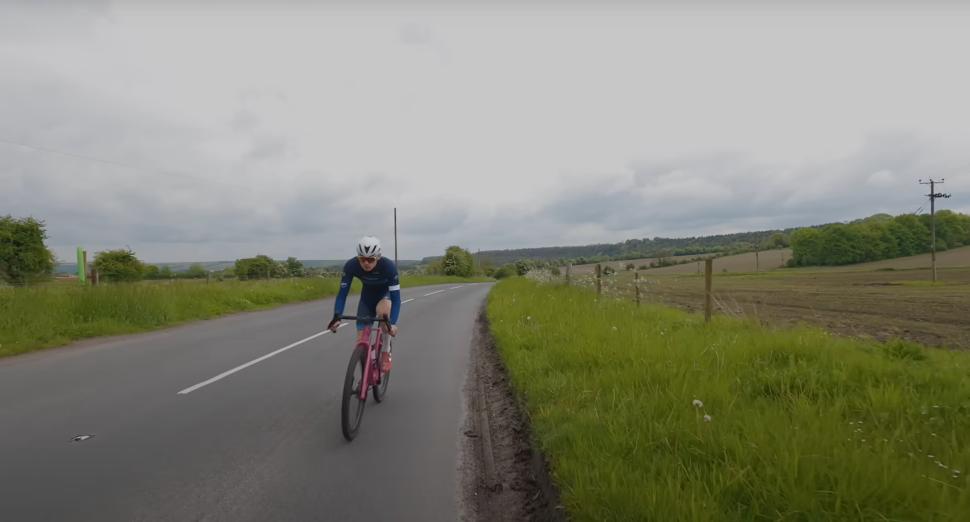
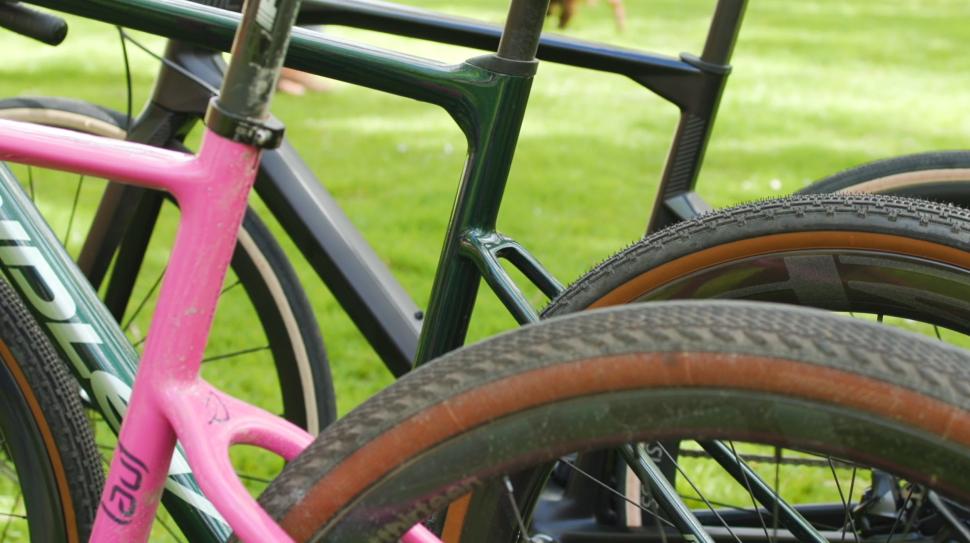
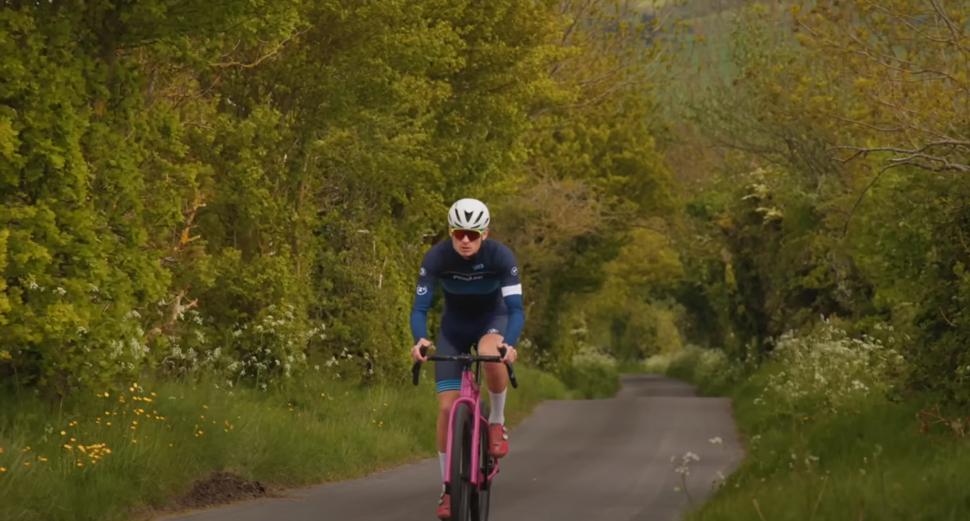

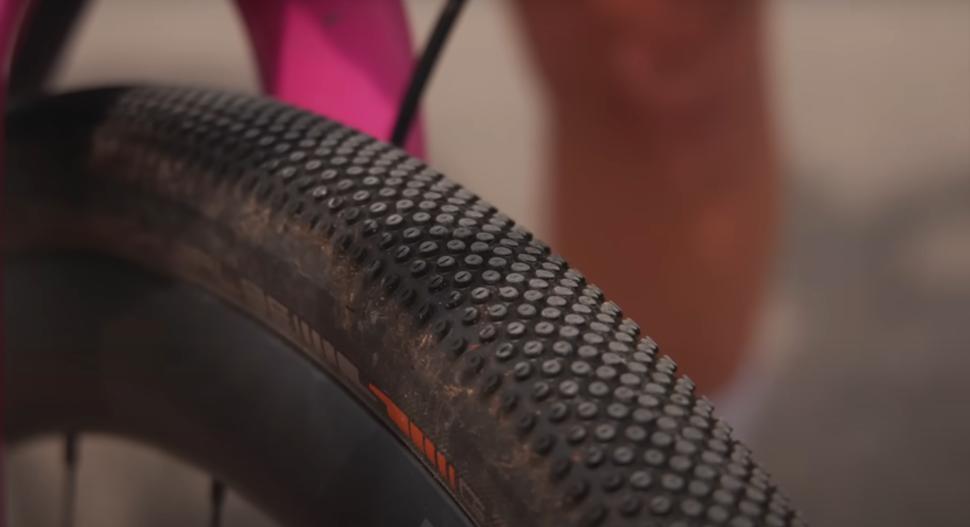

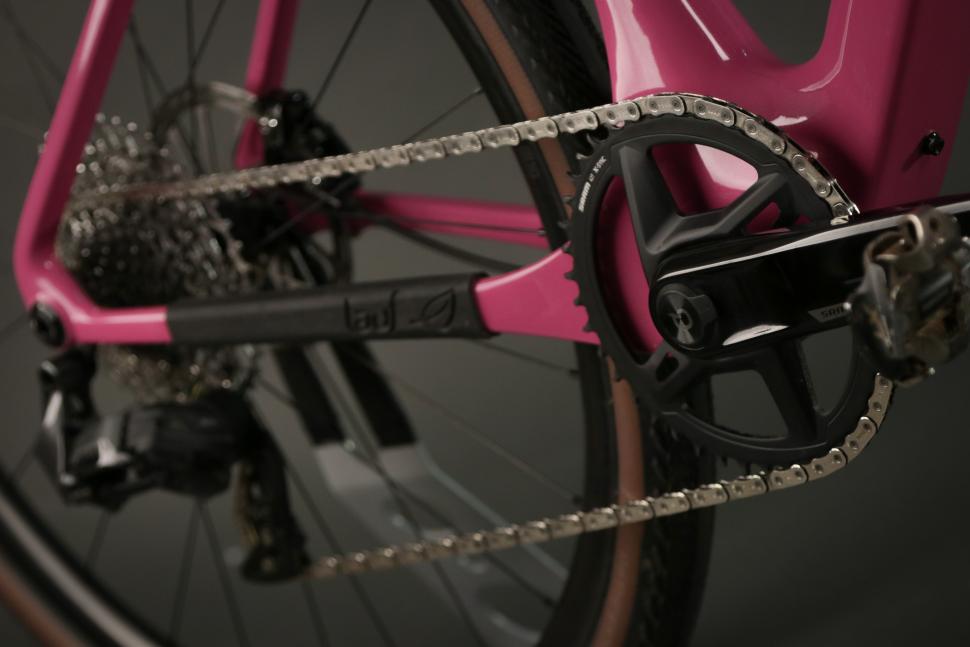

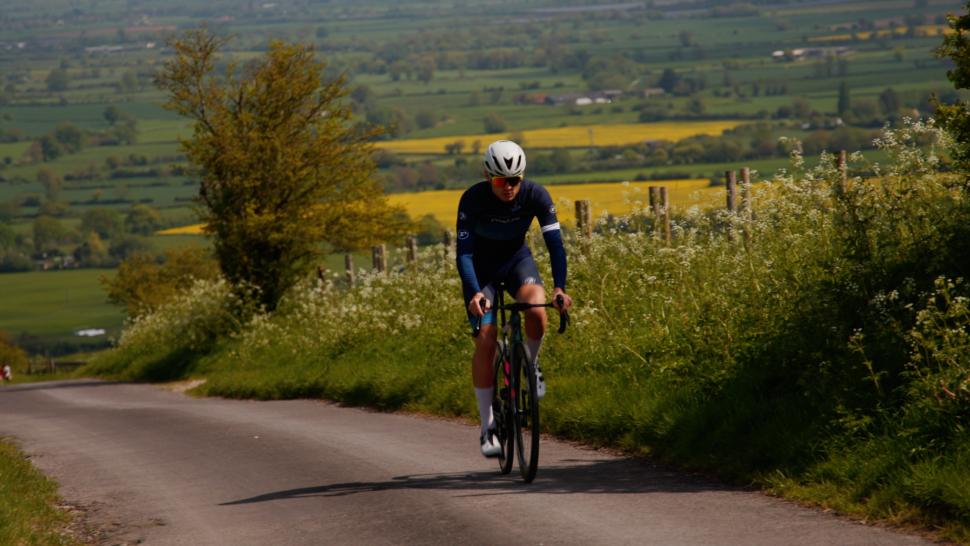
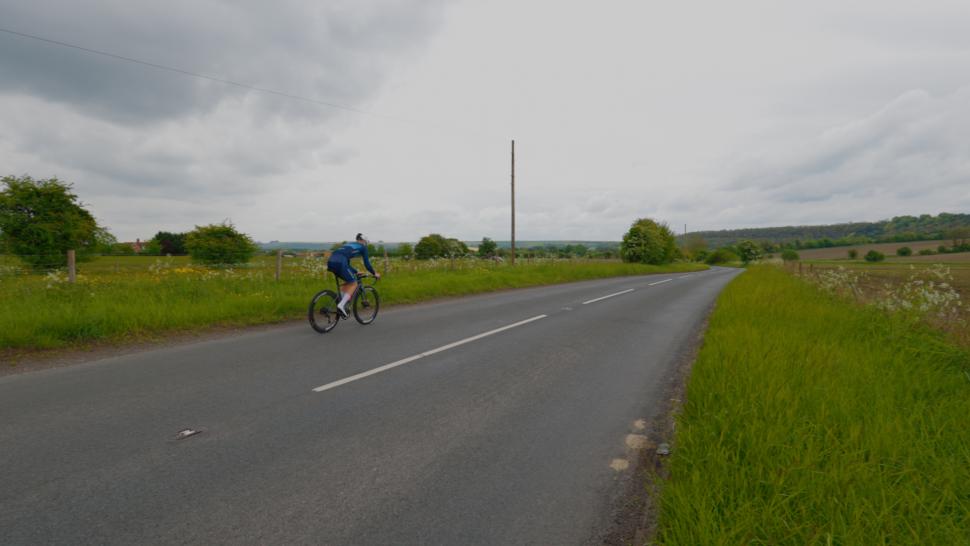
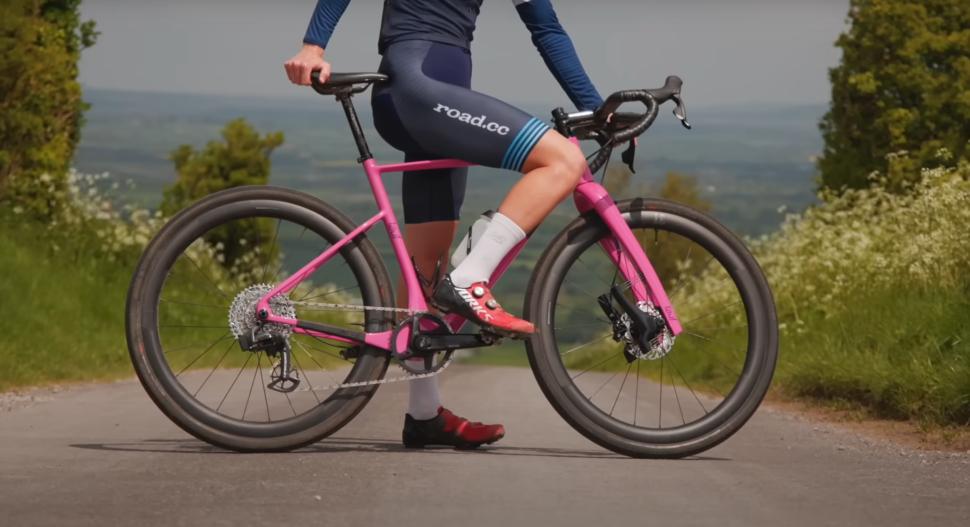
Add new comment
31 comments
I went for the Ribble CGR AL back in 2019, and no regrets. I wanted something that could do everything I wanted and it fit the bill then and still does now. The mudguards and pannier rack are a permanent fixture as it is my all weather commuter, but it's just as happy taking a turn off the road at the weekend. I may at some point change the derailleur to a grx, which wasn't available in 2019, as the chain does slap a bit off road with the 105.
I did some repeated testing, as accurately as I could without a power meter, over a course of just over an hour. The reference was my Merlin titanium Ultegra (pre-bonding!) 9-speed with rim brakes v. steel 'gravel' 35 mm tyres, disc brakes Sora 9-speed v. Halfords Intercity folder with Sora and disc brakes. The result is that the gravel is 5% slower and the folder only 10% slower
Pfft....
Does anyone genuinely give a shit?
I'm currently commuting 8 miles to work and back over a mixture of terrain, roads, gravel cycle paths, canalside trails and etremely pot-holed byways, on a, wait for it....
Cargobike!
Why do so many Brits who use a bike primarily to commute or get/keep fit imagine that they're in some sort of race such that they have to go as fast as possible for the least effort; or faster than ..... who else, since there's no one else riding with them?
Even if you are a racing person, when training the bike type is not that important in terms of it's speed-efficiency (although it might need to emulate the fit of your racing bike). What matters is the degree to which you can keep or improve your power output. Until you're actually in a race, how absolutely fast you go doesn't matter very much.
It is more pleasant to ride a bike that works well. But different bikes work well in a variety of ways. not just by being as fast as possible for the energy input over the ride.
I once used to commute (28 miles each way) to work on an old and cheap mountain bike set up with drop bars and slick tyres, with panniers for the clothing change and various other practicalities not needed on a racing bike. It was a lot slower than my racing bike but it still got me exceptionally fit ... and to work only 5 minutes or so (say 1 hour 20 mins rather than 1 hour and 12 minutes) slower.
Sometimes comparisons are odious, spurious and meaningless.
21mph or 34km/h average on a drop bar mountain bike with panniers? 🤔
It's just a fun article with some bike riding and stats thrown in. I seriously recommend you stay away from GCN channel if this offends you.
And uphill--both ways😉
For we fit racing creatures, 21mph on even a road-oriented old MTB (no suspension) with a pannier was not so hard. Mind, it was across the very flat Fylde, often through places like Eagland "Hill" (2 whole metres above sea level). Only the bridge over the motorway saw a bit less speed. 21mph average was cruisin', see?
My record was 24.4mph on the racing bike. It did help to have a tailwind and a route with no stopping junctions.
A part from racers, commuters are the cyclists to whom efficiency i.e. the highest speed with the least effort matters the most. But they also need comfort, far more than racers, who through high power outputs can sustain more extreme riding positions and will even, e.g. in a time trial, for a short while accept frankly uncomfortable things to gain that last little bit of speed.
Where many non-racers go wrong is in equating fast road bikes with the kind of efficiency+comfort they'd need, when actually they should be looking towards bikes like the British lightweight tourers or the French randonneur bikes. Those are the bikes for truly going fast IN comfort.
Efficient road frames, road handlebars set slightly below saddle height, road drivetrain but with lower gears, plus wide supple tires, mudguards, racks and lights. The whole weighing no more 11 or 12 kilos. Really efficient yet versatile bikes for real world riding (i.e. on your own without a team car or such like).
My beef with "gravel bikes" is that they take yet another type of specialist bike, this time one for gravel races, and market it as a do-it-all bike, which it definitely isn't.
I am constantly trying to improve my commute time for two reason:
I found this article quite useful. I can't afford to run a second bike to be able to compare times, so without something like this, it would be a gut feeling.
Re your point 1: When I commuted those 28 miles each way, I had to spend the first half hour at work in me cycling stuff, until I stopped perspiring like a leaky hose. Only then would a shower be possible without the subsequent donning of the work clothes resulting in even more sweating. Ditto on getting back home.
In practice, anyway, if you went at less than full blast it would likely take you only a few minutes less and you would be less tired so able to do family things once you did get home, rather than lie panting on the sofa.
Re your point 2: it's not a sport unless you do the sporting version: racing, TTs or similar. Do you do the same time-reduction thing when driving a car or eating an ice cream? I understand the syndrome, mind, having turned any number of fell walks into a route march and even a dog walk into a count of how many times I could chuck a tennis ball or stick in the distance walked.
Still, obsessive compulsions are often .... damaging. Why not just enjoy the ride in other ways? My favourite was the weird conversations with the cowman, at 6:30 am as he herded the beasts up 300 yards of back road I was going down, from their field to the milking shed. It ruined my average speed for the ride, though.
I hope you don't think I was attempting to prove you wrong in some weird way - you asked why, I was merely offering my experience.
I don't have shower facilities at work, so I towel off the excess sweat and hope I don't stink too much!
As for the sport/not sport - my youth has a lot to answer for. Running & cycling were sports for me, so when I run or cycle the sport portion of my brain kicks in and competition ensues. I called it a compulsion, but I don't get angry if I get held up - the joys of knowing tomorrow I can try again. If a clear bit of road opens up in front of me, I will push myself as hard as I can, but I will also slow down and often stop and chat with people I see on my commute.
Ref the time-reduction when driving a car - yes. I do. I alter my routes/ time I leave at to work out which is the shortest time. I assure you I do it within the confines of the law though! That isn't the sport part of my brain though - I guess a lot of people do a similar thing?
One of the unexpected benefits I found to cycling instead of driving my commute is the consistency in time. Bad traffic would delay my driving commute, but my cycling commute is the same time every time. I find that quite relaxing. The reassurance of knowing that when I leave, I will arrive in 30 minutes.
I am very aware I am not normal. I know people out there love cycling their commute because of the wind in their hair or the beauty of the countryside. Again - I was just attempting to offer my experience of what would be perceived as "race mindset"
People are competitive. Sport (the basis for many bike sales) is competitive.
But also you're not accounting for all the people - the majority, I'd suggest - who are obviously not in a hurry, not clipped in and not wearing lycra.
And if you don't like the basis of the article then why did you bother reading it?
I don't own a gravel bike and I'm not hugely into bike tech but it's interesting to see the relatively small differences in performance. And if I seriously consider using an 'all road' or gravel bike instead of / as well as a road bike I'll know that the on-road performance differene is likely to be small.
Maybe ride what the hell you like, because nobody else gives a shit.
There are no right or wrong answers.
if you like it, ride it 🤓
I've got a Ribble Gravel AL, which is basically my ideal road bike. It's got low gears - GRX 2x10 (46/30 on the front and 11-34t on the back), wide tyres and disc brakes.
With slicks on it (700x35c) I'm almost as quick on it as I was on my road bike (BTWIN Triban 540) - my 33 mile commute on average takes 90 seconds longer.
The route is mostly country lanes with lots of potholes and it's quite hilly. I'm a lot more comfortable going up using the lower gears and more confident coming down with the disc brakes. I do run out of gears at 30 mph, but the descents are narrow and twisty so it's not really safe to do any more than that.
Not too many suprises here tbh.
But...you missed the key thing - road bikes are more fun on the road - they just are.
I've ridden (owned) both types and the extra effort required by the gravel bike especially when against a headwind really ruins any sense of fun. Lovely at slower speeds without a doubt due to the fat tyres, but I only took mine on a group ride once for a reason. Most of my riding was long distance commutting so this may have affected my judgement here btw, at slower speeds in town it was really nice to ride while in th faster sections it was horible unless there was a fierce tailwind to push it along. Then the 1 by would have me max out pretty quick...
EDIT: I did swap the wheels over to a road set btw and while this definitely helped, if you have an upright or heavy bike or one with wide bars then all these things will slow you down or require more effort for the same speed in my experience. Saying that most differences between bikes are massively negated if you are happy with a slower cruise and can moderate your effort accordingly
I would really like to see a braking test between these two bikes and a road-bike with caliper brakes and 23c tires.
I too would like to see the test repeated using the same wheels/tyres on both bikes. Many people, myself included, do have more than one wheelset for their gravel bike, and choose the appropriate one. The argument is that with a road-focused wheel/tyre set up, the gravel bike is pretty much as fast as a road bike, but you can then put on a chunkier set of tyres and go off-road too (which you simply can't do on most road bikes).
I also note that one advantage of using a gravel bike on the road (that doesn't feature prominently in this test) is that, with wider slicks, you can handle poor roads much better - and that means faster. I run 35mm slicks on my gravel bike as "road" tyres, and on poor roads or cobbles, I can often just keep happily pedalling along whilst those on road bikes limited to 25/28mm tyres are braking, slaloming between potholes etc.
Bingo - this - and given that 50% of Surrey's roads are sufficiently potholey to be gravel having 32mm slicks of something is pretty nice.
As you say, I can then chuck on some chunkier tyres and go gravel riding - I am even contemplating messing about with some CX over the winter.
Okay, a road bile is faster than a gravel bike on the road, so what. Where is the test the other way around. How much faster was the gravel bike on erm, gravel?
I'd happily challange the faster Ferrari going to a race against my old 60yr old Landrover, and win it, that is provided I could pick the course.
I think you missed the point of the test. He's not trying to see which one is absolutely faster, or criticize the gravel bike for being slower on the road, or whatever.
He's just asking how much one gives up when taking a gravel bike on the road.
The answer? Not much. (And likely would have been even less if he'd used better, but still wide, tires. Dear road.cc, please get Jamie a pair of Rene Herse Snoqualmie Passes and *ahem* encourage him do the test again☺️)
I ride a gravel bike with relatively narrow 38mm tyres for my mainly road commute (about 2 miles out of 25 are unpaved). I am probably a couple of mph slower in top speed than on a road bike but for the comfort and the control on the gravel it is a small price to pay. Whether I feel the same in the winter when I will be using it on the road as my winter bike we will have to see.
I too am on a gravel bike. 1mile out of 8 is canal path/gravel road. I am currently running 32mm tyres, but swap the rear to 38mm when the weather turns. I get passed by a road bike every now and then when I am on the roads, but I also pass MTB on the canal path. I haven't ridden a road bike to offer empirical evidence, but my gut reaction to this article was "sounds about right"
Funny, René Herse tested just this in the last BQ (N°82).
Conclusions: "Wide tires are not measurably slower than narrow tires." "The penalty of suboptimal tires is significant." "Our latest tests show that, if gravel bikes are slower than road bikes, wide tires by themselves are not the reason."
... and knobby tyres no slower than slicks.
I can't help but feel this would have been a better comparison if the gearing was closer with 2x on both bikes.
With 2x on the gravel bike I suspect the flat comparison would have been even closer. Surely if people want a gravel/road combo they're not going for 1x gearing?
If the tester was putting out consistent power, then the gearing should have made minimal difference (technically the drivetrain efficiency might vary slightly between different gearing set ups, but any such effect would be marginal).
It seems that the difference in rolling resistance is very small for the much greater comfort of gravel tires.
Aero is the key.
Could you tell your head height on both bikes and handlebar width and flare of the two?
You should re-do the test but put road tyres on the gravel bike.
Agreed.
My road bike is a gravel bike with a set of deep wheels and road tires. It's marginally slower than my cycling buddies Scott aero bike when free-wheeling down hill and spins out at around 54kph, but otherwise I don't think there is a huge amount in it.
This is my n=1 too. 650b for gravel. 700c deep wheels for road. My Strava PR's tell that the conditions on the day make far more difference than the bike set up.
Pages